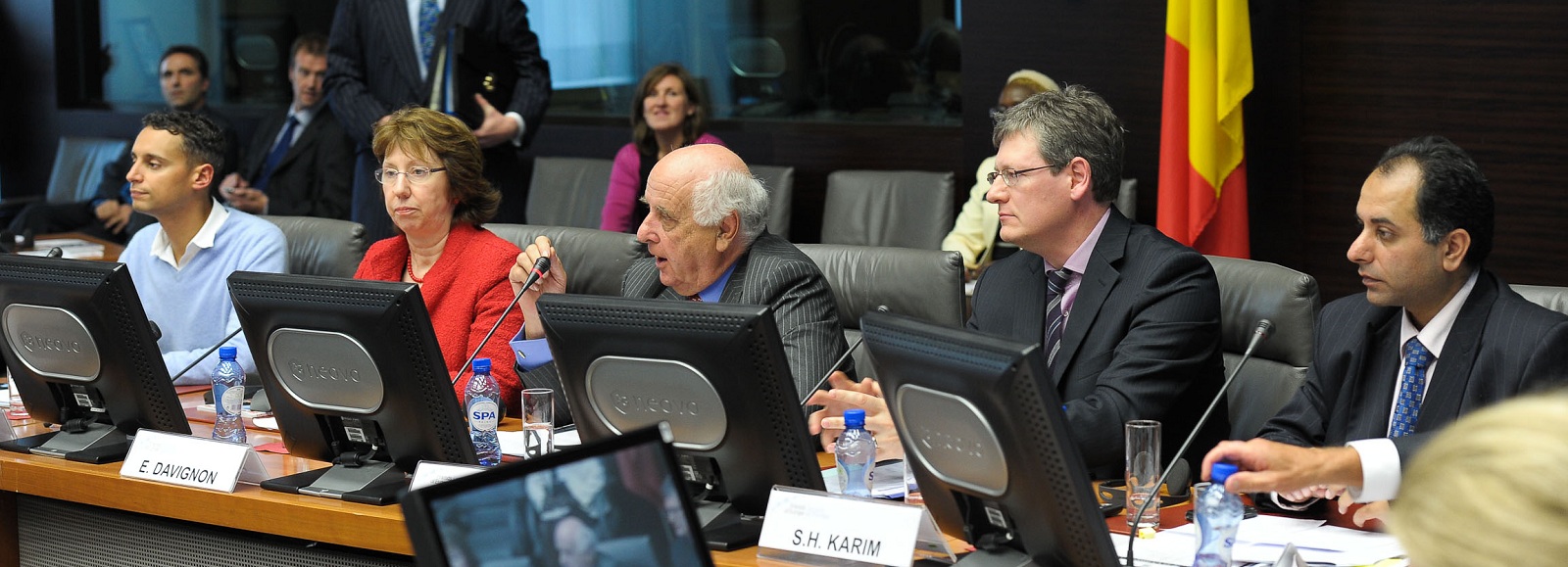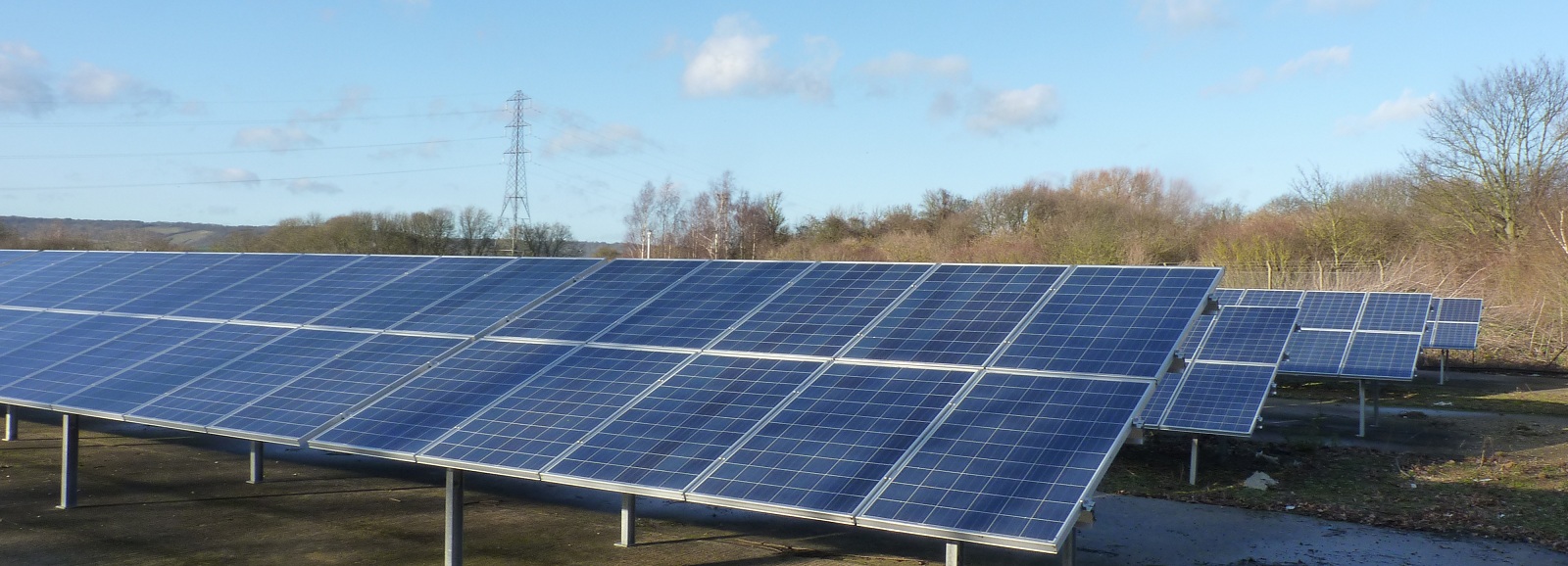The Centre’s research activities for the years 2013-2016 revolve around four European Research Nodes (ERNs). Each ERN brings together faculty and students whose work has a thematic link to the ERN. ERNs are headed by one or two Europeanists.
This page contains more information on the mandate and membership of each individual ERN. To jump to a specific ERN, you can click on one of the links below.
Browse by Research Theme
To browse information on all the ERNs sequentially, you can simply scroll down.

Photo by Friends of Europe | CC BY 2.0 | Cropped from original
ERN 1: The EU as Global Actor and EU-Canada Relations
(Return to top)
This ERN focuses on transatlantic cooperation between the EU and Canada. Issues include the means in which partners act together to support multilateral institutions (e.g., the International Criminal Court) and to promote global governance (e.g., through institutions such as the UN, ICC, OSCE) and the ways in which the EU and Canada can enhance policy effectiveness through joint actions and their partnership in crisis management, conflict prevention and human security. ERN members also examine how the partners might address challenges facing Europe and Canada in dealing with those areas of the former Soviet Union outside of the EU, including relations with Russia, countries included in the Eastern Partnership, and conflict zones in Central Asia and the Caucasus. Throughout, the aim is consider not only the policy outputs but analysis of the ways in which the EU and Canada might more effectively speak with a “common voice” in international affairs, thus setting an important example for third countries to follow and influencing debate on the global stage.
The node works in cooperation with Carleton’s Centre for Security and Defense Studies (CSDS) of the Norman Paterson School of International Affairs in cosponsoring events and in seeking research synergies.
ERN Coordinator (s):
Prof. David Long, CES and Norman Paterson School of International Affairs
Prof. Joan DeBardeleben, Institute of European, Russian, and Eurasian Studies
ERN Members:
Prof. Franz Kernic, CES and Institute for Strategy and Security Policy
Prof. Costanza Musu, University of Ottawa
Prof. David Mendeloff, Normal Paterson School of International Affairs
Prof. Charles Pentland, Queen’s University
Key European Partners:
Prof. Franz Kernic (Swedish National Defense College, Stockholm, Sweden)
Prof. Sven Biscop (Royal Institute for International Relations, Ghent University, Belgium).
Members of the ERN work with a variety of other partners in Europe as well.

Photo by William Murphy | CC BY-SA 2.0 | Cropped from original
ERN 2: Citizenship and Social Integration: Between National and Transnational Society
(Return to top)
This Research Node focuses on policies, practices and discourses that shape forms and conceptions of political participation, social inclusion/exclusion, and citizenship in the European Union and its Member States. It analyzes public policies, but also political practices and discourses relevant to processes of social integration in Europe’s multi-level system, and maps new conceptions of membership and territoriality that emerge from them. It concentrates on two subthemes: first, it examines political participation at multiple levels and sites within the EU, focusing on electoral turnout and participation in political parties and civil society organizations, as well as on the integration of migrants and/or other “marginalized” groups into labor markets, education and social security systems, urban neighborhoods, etc.; secondly, it inquires how such policies and practices, as well as the ensuing demands and claims expressed by political actors, contribute to – or are shaped by – the discursive construction of new concepts and spaces of transnational citizenship.
ERN Coordinator(s):
Prof. Achim Hurrelmann, Department of Political Science
Prof. Martin Geiger, Department of Political Science and Institute of European, Russian, and Eurasian Studies (EURUS)
ERN Members:
Prof. James Casteel, Institute of European, Russian, and Eurasian Studies (EURUS)
Prof. William Cross, Department of Political Science
Prof. Robert Gould, School of Linguistics and Applied Language Studies
Prof. Melissa Haussman, Department of Political Science
Prof. Raffaele Iacovino, Department of Political Science
Prof. Karim H. Karim, School of Journalism and Communication
Prof. Rianne Mahon, Institute of Political Economy
Prof. Jon H. Pammett, Department of Political Science
Prof. Hélène Pellerin, University of Ottawa, School of Political Studies
Prof. Jeff Sahadeo, EURUS, and Department of Political Science
Prof. Daiva Stasiulis, Department of Sociology and Anthropology
Prof. William Walters, Department of Political Science
Prof. Elke Winter, University of Ottawa, Department of Sociology
Prof. Christiane Wilke, Department of Law
Prof. Sebastian Baglioni
Key European Partners:
University of Bremen in Germany [Centre for Social Policy Research (Frank Nullmeier), the Research Centre ‘Transformations of the State’ (Stephan Leibfried) and the Jean-Monnet-Center for European Studies (Ulrike Liebert)]
Members of the ERN work with a variety of other partners in Europe as well.

Photo by Luke McKernan | CC BY-SA 2.0 | Cropped from original
ERN 3: Innovation in Environmental Policy in Europe and Canada
(Return to top)
Canada and the European Union face common challenges in environmental policy but differ in their responses to those challenges. This Research Node focuses on the comparative study of Canada/EU innovation in environmental policy, organized around three core themes. These are innovation in: a) governance, particularly multi-level governance for the environment; b) responses to climate change; c) policy instruments, such as negotiated agreements and market based measures. The purpose of the work is to build closer collaboration between researchers on environmental policy in Canada and the European Union, to strengthen comparative understanding of environmental policy innovation in developed states, and to encourage cross-national learning about innovative approaches in this policy field.
ERN Coordinator:
Prof. Inger Weibust, Norman Paterson School of International Affairs (NPSIA)
ERN Members:
Prof. Peter Andree, Department of Political Science
Prof. Eda Kranakis, University of Ottawa, Department of History
Prof. James Meadowcroft, School of Public Policy and Administration
Prof. Matthew Paterson, University of Ottawa
Prof. Stefan Schott, School of Public Policy and Administration
Primary European Partner:
Environmental Policy Research Centre, Free University of Berlin (Miranda Schreurs)
Members of the ERN work with a variety of other partners in Europe as well.

Photo by Train Photos | CC BY-SA 2.0 | Cropped from original
ERN 4: The Political Economy of European Integration: Regional and Economic Dimensions
(Return to top)
This research node focuses on implications of EU accession and EU policies for regional equalization both between member states and within member states, with particular attention to the new member states of Central and Eastern Europe and a comparative Canadian perspective. Members of this ERN also devote attention to other aspects of European economic integration and the EU’s external economic relations, including responses to the current economic crisis (including banking and regulatory reform); enhancement of trade and investment between the EU and Canada including non-tariff barriers; WTO obligations, CAP reform, and agricultural subsidies; economic effects of environmental and energy policies; the EURO and the new member states; and economic relations between the EU and new powers such as China, India, Russia, and Iran.
ERN Coordinator:
Professor Crina Viju, Institute of European, Russian, and Eurasian Studies
ERN Members:
Professor Joan DeBardeleben, Institute of European, Russian, and Eurasian Studies
Prof. Vivek Dehejia, Department of Economics
Prof. Randall Germain, Department of Political Science
Prof. Patrick Leblond, University of Ottawa
Prof. Vladimir Popov, Institute of European, Russian, and Eurasian Studies
Prof. Ian Lee, Sprott School of Business
Prof. Yiagadeesen Samy, Norman Paterson School of International Affairs (NPSIA)
European Partners:
Prof. Grzegorz Gorzelak, Center for European Regional and Local Studies (EUROREG), Warsaw University, Poland
Prof. Tatjana Muravska, Centre for European and Transition Studies, University of Latvia
Prof. Silvia Mihalikova, Jean Monnet European Centre of Excellence, Comenius University, Bratislava, Slovakia
Prof. Georg Sootla, Department of Government, Tallinn University, Estonia